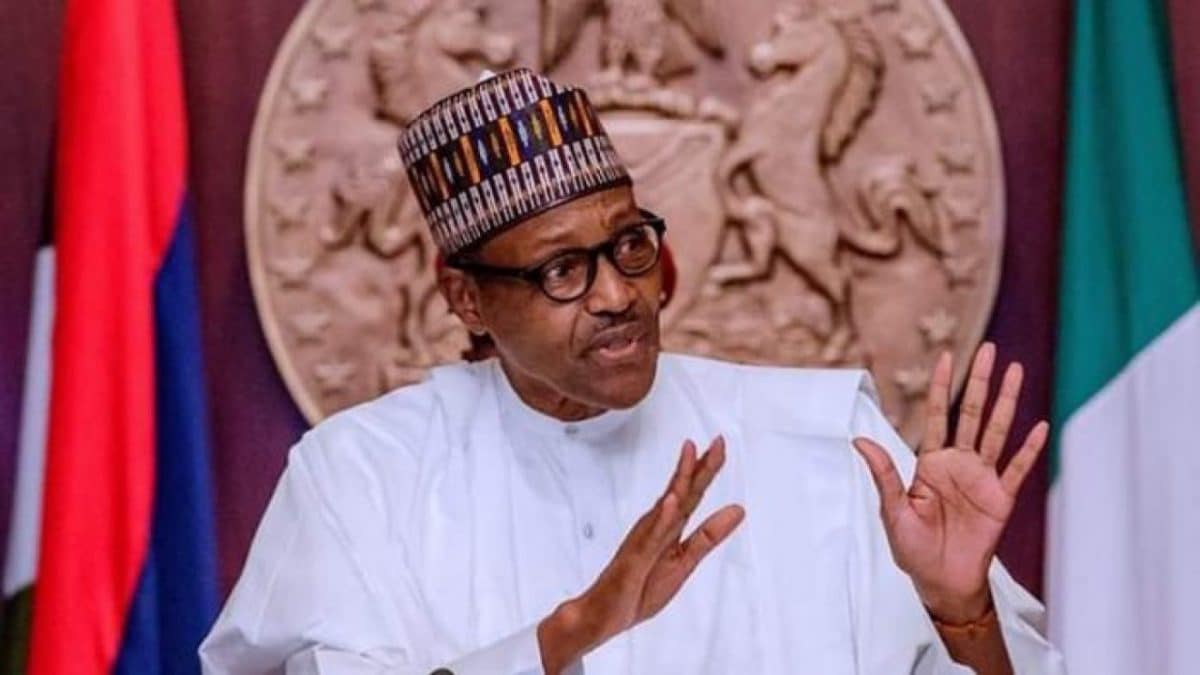By: Azuka Onwuka
Among all Nigerian civilian presidents and military heads of state, there is something incomprehensible and inexplicable about the current President, Major General Muhammadu Buhari (retd.). Other presidents seemed to be doing something about turning Nigeria around or solving some specific problems. Most of them might not have got the results the masses expected, but one could see their efforts and signs that they were trying.

Conversely, Buhari seems not to be concerned about Nigerian problems. He seems aloof and detached from Nigerian issues, especially the security challenges facing the country. Most importantly, he does not care that his nepotistic actions and appointments are fuelling the division and insecurity in the country.
The more people complain, the more he carries out his nepotistic actions to his kinsmen without bothering about creating a harmony in the country. There are those who even believe that Buhari is consciously taking these actions to push Nigeria into an intractable crisis.
I witnessed Buhari’s military regime between 1984 and 1985 as a head of state who was 42 years old. Even at that time when he was relatively young, strong, and healthy, he was inactive as a leader. He was reclusive and taciturn. His deputy, Brigadier Tunde Idiagbon, was in charge of virtually every aspect of their tenure. Idiagbon addressed the media regularly and answered questions on issues of governance.
Most people saw that as a wonderful form of delegation of duties, especially coming from a military officer whose profession is known for its love of power and control. With the benefit of hindsight, it was a case of abdication of responsibility. As a man of just 42 years, Buhari showed that he neither had interest in leadership and management nor capacity for such.
Between 2003 and 2011 when Buhari tried unsuccessfully to become the country’s president, many were convinced that he would make a different kind of president – averse to corruption; intolerant of waste, ostentation and profligacy; intolerant of insecurity; and dedicated to a fair and just country. Even though I saw through the facade created by Buhari, I never imagined that he would be this incompetent and insensitive in office.
Having listened to his speeches and comments during the sharia riots between 2000 and 2001, I knew that Buhari tended towards religious fundamentalism and would not treat Muslims and Christians equally. I also witnessed the way he treated issues concerning the North and South when he was military head of state, when he was the chairman of the Petroleum (Special) Trust Fund, and when he held no post but was seen as an elder statesman.
In addition, I never saw him display flashes of natural intelligence in his speeches and comments on national issues, neither did he show that he understood economic issues. However, I felt that if he was an honest leader who wanted the best for Nigeria, he could employ the services of competent men and women that would help him achieve some tangible results.
Unfortunately, Buhari seems not to be interested in solving Nigeria’s problems, or his ideas about solving Nigeria’s problems are the opposite of what they should be. The only thing he does well is that he has aides and supporters whose duty is to defend and justify anything he does or fails to do.
When Buhari came into office in 2015, insecurity was restricted to some parts of the North-East where Boko Haram terrorists held sway. Many Nigerians felt disappointed that Dr Goodluck Jonathan did not have the capacity to end the reign of Boko Haram. It was believed that as a retired military general and also a Northerner, Buhari would be more competent and passionate to defeat Boko Haram.
Sadly, the coming of Buhari seemed to empower more outlaws to rise. The herdsmen became bolder and unleashed terror across many states and zones. Another group, nicknamed “bandits”, took over the control of many states, especially in the North-West.
Road trips became a nightmare because of regular abductions. Sadly, the comments and actions of the President and his key officials give the impression that the government gives tacit backing to these outlaws because most of them are of the same Fulani ethnicity as the President. It seems that the singular concern of Buhari is to create settlements for the Fulani across the country than with the security and wellbeing of Nigeria and Nigerians.
Regularly, leaders of different cattle-rearing groups, who are of the Fulani stock, publicly acknowledge being the masterminds of attacks on different communities. They would make these disclosures on TV or at town-hall meetings and also issue threats, yet they would not be arrested or even cautioned. Communities which keep even machetes used as farm tools complain that they are regularly “disarmed” by soldiers and made vulnerable to attacks. In addition, people notice the excessive force with which the military and police descend on other groups like the Indigenous People of Biafra, the Shiites, etc. Many have concluded that the presidency directly or indirectly endorses the attacks on communities by bandits of Fulani ethnicity.
Even between 1993 and 1998 when Nigeria’s erstwhile military head of state, General Sani Abacha, turned Nigeria into a pariah state after General Ibrahim Babangida fouled the air with election annulment in 1993, there were no strong voices talking about the disintegration of Nigeria. The main issue was how to solve the crisis facing Nigeria.
When the Niger Delta militants rose up during the presidency of Chief Olusegun Obasanjo and began blowing up pipelines and kidnapping oil workers, there was no talk about disintegration of Nigeria. About the same time, the Movement for the Actualisation of the Sovereign State of Biafra emerged and began to campaign for Biafran secession. The O’odua Peoples’ Congress also began to attack police stations and create ethnic clashes. The leaders of Niger Delta militants, MASSOB and OPC were arrested and detained for some time.
While all these groups created tension, there was no serious fear about Nigeria’s disintegration. People just felt that they were being unfairly treated and needed justice. After a while, the OPC stopped being violent, MASSOB fizzled out, Niger Delta militants dropped their arms through Yar’Adua’s amnesty programme.
In 2015, Buhari became the first Nigerian President to defeat an incumbent president. He also became the first Nigerian president that got sworn in without any legal contest or street protest or bickering. Through his exemplary peaceful and forgiving attitude, Jonathan calmed down all those who would have created tension. The nation was calm as Buhari came in. Only Boko Haram was causing problems. But its case was religious, rather than ethnic or political.
Read Also: Problems Of Nigeria Are Beyond Buhari Administration – Wole Soyinka
Despite all that political calmness in Nigeria, Buhari used his own two hands and two legs to create the type of division that Nigeria has never witnessed in its history. Not even during the Civil War did Nigerians feel this detached from Nigeria.
Some people are known to create problems for others. But I have never seen where a person with no problems decided to create problems for himself without a care. You turn left, someone is talking about the fear of Nigeria’s breakup. You turn right, someone is talking about why you need to have a Plan B in case of any eventuality in Nigeria. When Nigeria celebrates her Independence Day, rather than the citizens celebrating the country, they are busy cursing the country. Almost 61 years after Independence, Nigerians still don’t feel a sense of nationhood.
The general feeling is that Buhari should complete his tenure, so that Nigerians can heave a sigh of relief. Even if Nigerians cannot feed properly, let them be alive and safe. However, the sad part is that there are still two full years of Buhari’s tenure. What it means is that the journey is still far.
Follow us on Facebook
Post Disclaimer
The opinions, beliefs and viewpoints expressed by the author and forum participants on this website do not necessarily reflect the opinions, beliefs and viewpoints of Anaedo Online or official policies of the Anaedo Online.

